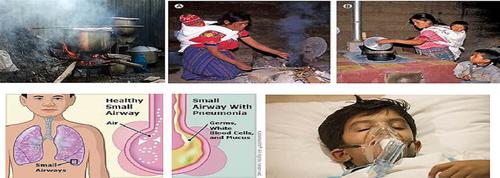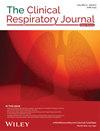Under-five mortality reduction due to pneumonia is not Signiant, particularly in developing countries. Pneumonia contributed to 27.5% to 31.3% of health facility visits by children 2 to 59 months in Aleta Wondo Woreda. Previous studies have shown inconclusive evidence on determinants of pneumonia in children.
An institution-based unmatched case–control study was conducted to assess determinants of pneumonia among under-five children at Aleta Wondo Woreda, Sidama Region.
One-hundred forty-five cases and 290 controls of children aged 2 to 59 months participated in the study. The mean ± (SD) age of the children was 18.81 months (2.1 ± 11.43) and 28.26 months (2.1 ± 16.007) for cases and controls, respectively. Only 56% (n = 145) of cases open house windows daily, whereas most 68.6% (n = 290) of controls house windows open daily. Ninety five (62.8%) of cases and 68.6% of controls were exclusively breastfed for 6 months. Household income ≥1500 Ethiopian birr (AOR = 0.45, 95% CI, 0.017–0.120, p < 0.000), child location outside of cooking house during cooking (AOR = 0.101, 95% CI, 0.43–0.238, p < 0.000), no formal education of the mother (AOR = 2.398, 95% CI, 1.082–5.316, p < 0.031), and presence of history of upper respiratory tract infections (URTIs) in last 2 weeks (AOR = 2.183, 95% CI, 1.684–5.273, P < 0.049) were determinants of pneumonia.
Determinants of pneumonia in under-five children were multifactorial (socioeconomic, nutritional, and environmental). Addressing these factors by involving all relevant stakeholders is important to reduce pneumonia-related morbidity and mortality among under-five children in the study area.




